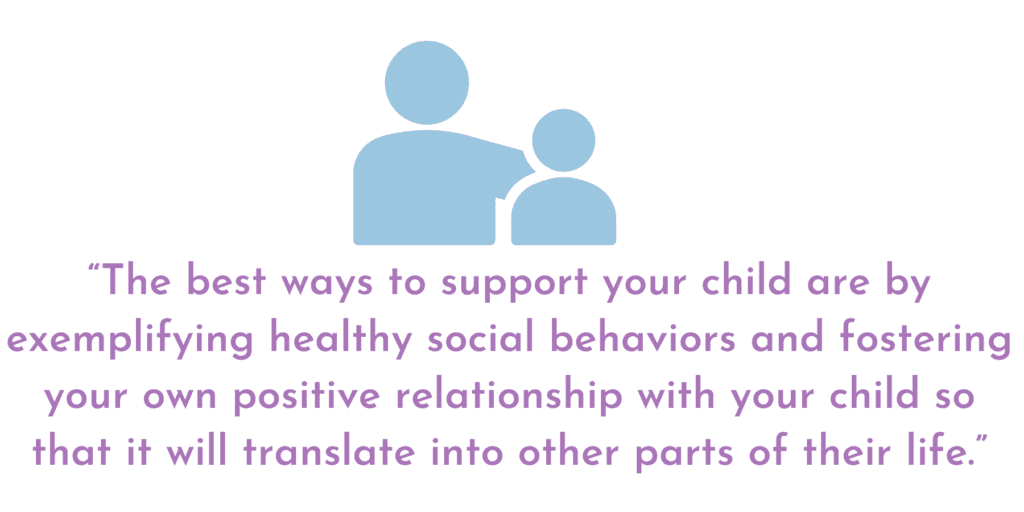One of the most daunting things about sending our children out into the world, is thinking about whether, and how, they will make friends. We all want our children to have happy and healthy social lives, and social skills are important. They help children succeed in school, stay healthy, and maintain good relationships. As parents and guardians, it’s natural to want to help your child(ren) foster healthy relationships; let’s jump into a few ways you can aid your child in making friends!
Infants & Toddlers
This age group might seem young when thinking about making friends, but infants and toddlers can form powerful connections with those around them. To help your young child(ren) forge relationships, here are a few things you can do:
Stress the importance of taking turns
Practice this when playing with them. It is important for them to understand taking turns because it can help them grasp what it means to reciprocate and express empathy in relationships. It can also help them learn to be flexible.
Coordinate play dates
Helping your child to organize a social activity supports their budding social skills. By doing this, you are leading by example and showing them healthy habits regarding socializing. Supporting them and coordinating social activities for them lets them know that socializing is a good thing and gives them opportunities to develop their social skills.

Young Children
Lead by example.
The ways you interact with and treat your child affect their emotional development and social behavior. When interacting with your child, show them warmth, care, and respect. These are all healthy behaviors that children will internalize and then utilize in their own relationships.
Help your child manage emotions.
Meeting your child’s feelings with empathy and compassion can help them learn how to regulate their emotions. Talking to them calmly, and showing them you are working to understand, can teach them how to deal with emotions in a constructive manner.
Teach your child conversation skills.
Make sure you are helping your child earn the standard practices when it comes to having everyday conversations. This includes things like how to introduce themselves, how to actively listen, and how to talk about likes and dislikes.
Let your child know it is okay to express remorse and make amends.
It is important that children understand that everybody makes mistakes, and working through one’s mistakes is a natural part of life and relationships. Teach your child that if they do something wrong, they can apologize and work to make it better. This will help them manage their behavior in a healthy way, rather than letting embarrassment or guilt take over.
Teach your child to be forgiving.
As well as letting them know that it’s okay for them to make mistakes, tell them that others make mistakes too. When this happens, it’s okay to forgive the other person and move forward.
There are many ways you can support your child’s social life, and help them as they transition into different stages of life and make new relationships. The best ways to support your child are by exemplifying healthy social behaviors and fostering your own positive relationship with your child so that it will translate into other parts of their life.








